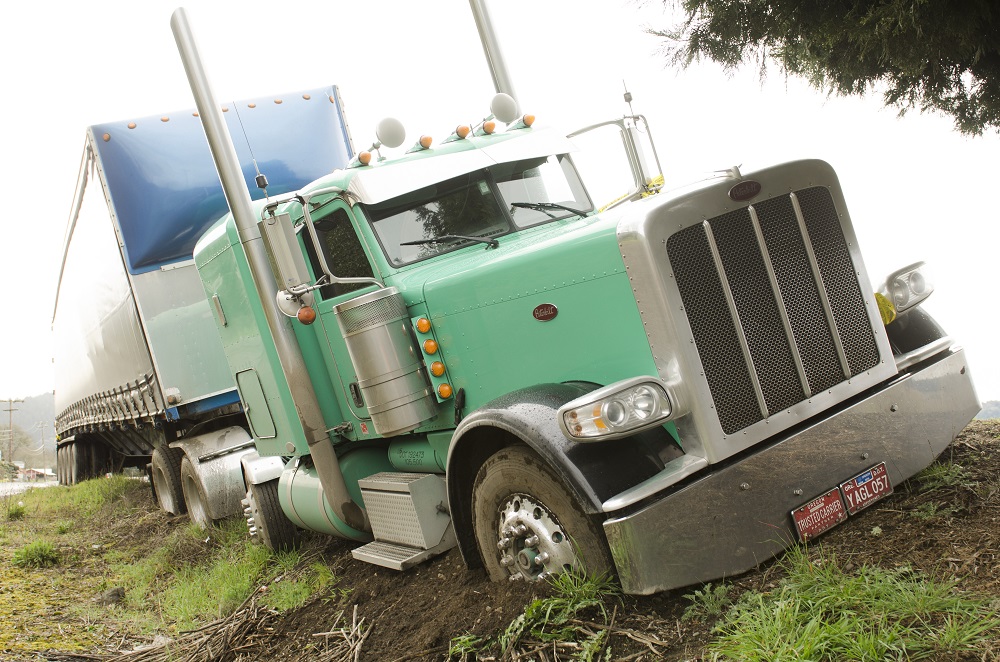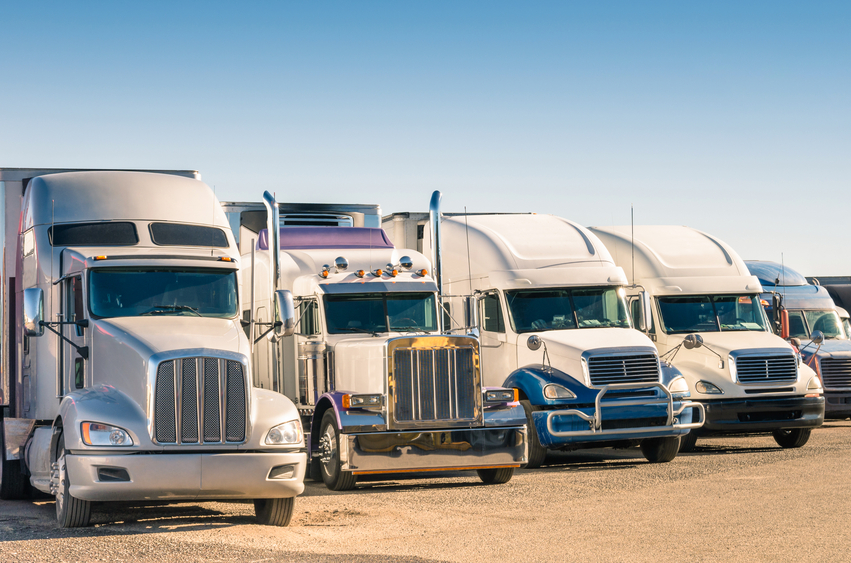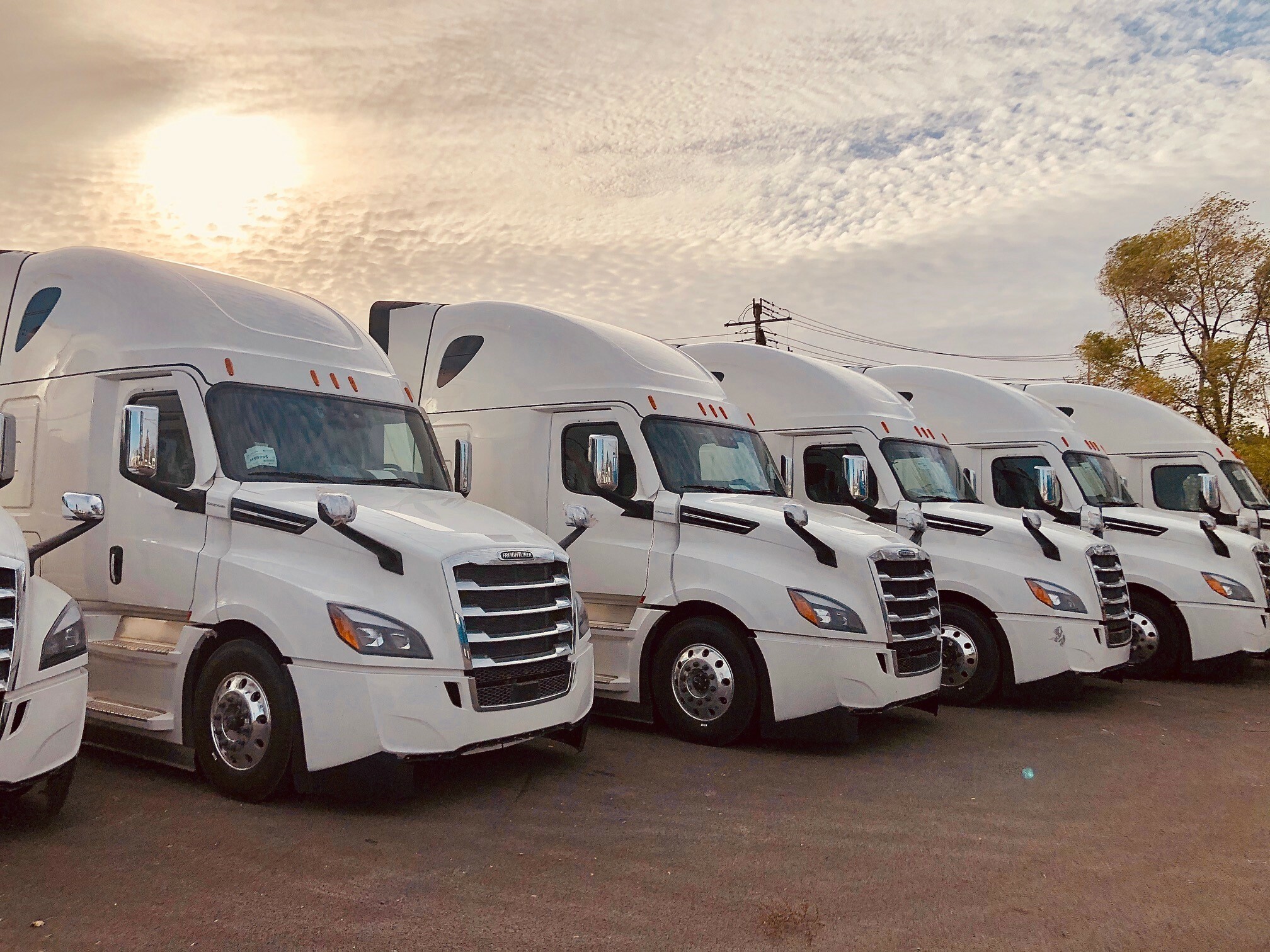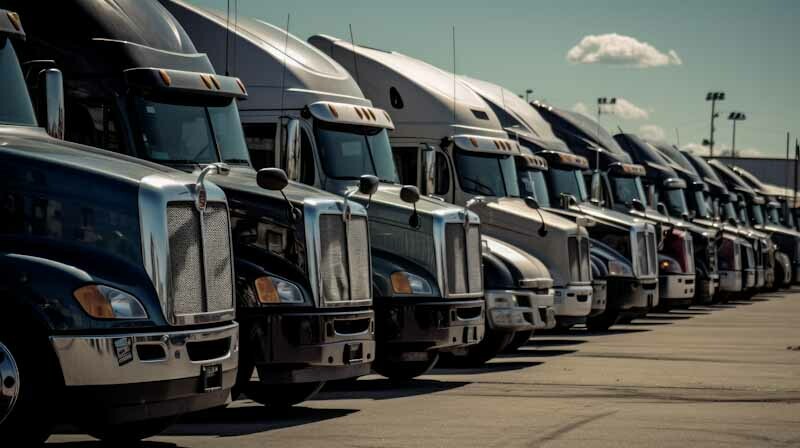A 5-Step Guide to Commercial Trucking Insurance
Jan 03, 2017 in Insurance 101, Trucking IndustryNavigating the complex world of commercial trucking insurance can be a major challenge. There are numerous pitfalls you have to avoid, and at the same time, select the right policy keeping in mind the requirements of your business. To make things easier for you, here’s a 5-step guide to commercial trucking insurance:

Image: iStock
Stick to Specialists
In this scenario, a specialist is an insurance company which has extensive experience providing insurance to commercial trucking businesses. You can opt for a general provider, but there you might not get the specific assistance and coverage that you need. Hence, the first thing you should do is look up a number of insurance companies which specialize in providing coverage to commercial trucking companies. This way, you can reduce the risk involved in the process and also increase your chances of having your claims processed quicker, if required.
You might read online that commercial trucking insurance rates vary from state to state. This can tempt you to move states to benefit from lower premiums. However, this is neither practical, nor feasible for a trucking business. The ideal way to get around this is obtaining quotes from a number of providers. This way, you will get a clear idea of how much insurance will cost. This is a better benchmark to rely on as compared to the stated industry averages. As mentioned, the averages can vary and you might have a hard time figuring out how much you will have to pay for insurance.
In order to obtain an accurate quote, you need to provide some relevant information. This includes
- The license numbers and driving histories of each driver you want to insure. Keep in mind that drivers with speeding tickets or other negative marks on their histories will cost more to insure.
- The vehicle identification number (VIN) for each truck, including the current condition of the vehicle as well as the security features. In case you don’t have the VINs, you can provide a general overview of each truck.
- If you are already insured, offer the declarations page.
The bottom-line is that you have to provide as much information about your trucks and drivers as possible to get a reliable quote. Make sure you don’t withhold any information, as the quote might change if your insurance provider discovers it down the road.
Select the Right Type
Commercial trucking insurance can be broken down into different categories, such as
- Physical Damage: You might have to get physical damage insurance for your trucks if there is a loan on them, as most lenders require it. In any case, there are numerous potential hazards on the road and you will assume all the risk until you purchase coverage. The risk of collision on the road, leading to a major accident, is significant, besides damage caused by fire, natural disasters, weather and theft.
- Bobtail Insurance: Non-Trucking Liability Insurance is sometimes incorrectly referred to as Bobtail Insurance. Non-Trucking Liability insurance covers liability towards third parties when the truck is used for non-economic purposes.
- Liability Insurance: As you would know, liability insurance is a legal requirement. If you don’t have liability insurance, you could incur stiff penalties. This type of insurance will cover your responsibility in case of an auto accident.
- Cargo Insurance: Motor truck cargo covers the cargo your trucks are carrying against damage. This is particularly crucial if you are working with a shipping company.
It is important that you assess your insurance needs and then decide on the extent of coverage you need. A better option is to work with a specialist agent to make the best decision.

Image: iStock
Understanding the Factors
When it comes to commercial trucking insurance, going for the cheapest option can be a bad decision. While price isn’t always reflective of the extent of coverage you will get, simultaneously the low-price insurance providers can make things difficult when you file a claim. The convenience of having your claims processed quickly and without hassle is surely a benefit of opting for a topnotch insurance vendor. This is why it is important that you get multiple quotes to ensure you have a clear idea of the cost of the premium you will have to pay on your insurance policy.
Even more important is to understand the factors which affect the cost of insurance. These include:
- Scale of Operation: The more trucks you have and the more they are used, the more you will have to pay for insurance.
- Parking Facilities: Where you park your trucks when they are not in use will also affect the premium. If the location is safe, you will have to pay a lower premium.
- Driving Record: As mentioned, if your drivers have a spotless driving history, the insurance company will view them as less of a risk.
- Prior Claims: If you have regularly filed insurance claims in the past, it will increase the premium because you will be viewed as a risk.
- Safety Score: As mentioned above, the safety scores of your drivers will have a significant impact on the cost of insurance.
In addition, the condition and age of your vehicles will also impact the premium. If your company has a positive record on all these factors, you will get a lower premium. So, it is better to analyze your business and operations and then determine if you can quality for an affordable premium.
How Much Insurance Do You Need?
As a commercial trucking operator, it is important that you assess all the risks your trucks and drivers face on a regular basis. This includes the risks the trucks face when in transit and when not in transit. The weather conditions in your region are also a pertinent factor, which sometimes gets ignored. Keep all these risks in mind and you will be better able to determine how much insurance you actually need. Getting coverage for every aspect of your business might be too expensive but this way, you can at least get the maximum possible coverage for your business.
To conclude, following the 5 steps mentioned here will enable you to sidestep the potential pitfalls you might encounter when buying commercial trucking insurance. Keep an open mind and take the time necessary to make a decision, so you can get the best value for your money and also adequate coverage for your business. An even better option is working with a qualified specialist agent so you can make the best possible decision.



